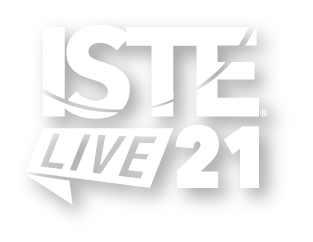

Digital Competence for All – the Nordic Way |
Listen and learn : Lecture
Dr. Linda Mannila
Explore a Nordic perspective on digital competence and get insight into the Finnish and Swedish curricula that requires teachers not only to teach with technology but also about it as a transversal competence. Learn about initiatives such as "pupil teachers," tutor teachers, collegial learning and PD approaches.
| Audience: | Principals/head teachers, Teachers, Teacher education/higher ed faculty |
| Skill level: | Beginner |
| Attendee devices: | Devices useful |
| Attendee device specification: | Smartphone: Android, iOS, Windows Laptop: Chromebook, Mac, PC Tablet: Android, iOS, Windows |
| Topic: | Digital citizenship |
| Grade level: | PK-12 |
| ISTE Standards: | For Students: Computational Thinker
Citizen
|
Since a few years ago, digital competence is an integral part of the national curriculum in both Finland and Sweden. This means that students should not only learn how to use technology, but also to, for instance, understand how the digitalisation affects society, how technology works and how to implement ideas using technology. Consequently, all K-12 teachers were faced with the challenge of teaching about technology, not only with it. For many teachers, this was not an easy task – they might not have any background in such topics, and they may consider technology difficult, boring and not at all interesting.
In this lecture I will provide the Finnish and Swedish perspective on introducing digital competence as a transversal set of skills and attitudes. The attendees will learn about the curricula and the process of introducing it at national level in the two countries. I will also bring light on different types of initiatives that were set in place to support the process, such as collegial learning networks, professional development approaches, and "pupils as teachers"-projects. Based on two large current studies of the implementation in the two countries, the attendees will also get fresh insights and learn some best practices from introducing digital competence the Nordic way.
Part 1: The Finnish and Swedish educational systems (10 minutes)
Brief introduction to education in grades 1-9 in Finland and Sweden.
Part 2: Digital competence as a transversal set of skills and attitudes - why and what? (15 minutes)
In this part, I bring light on why digital competence was introduced as a cross-curricular trait instead of e.g. computer science as a subject of its own. I will also show how digital competence has been integrated in the curricula and provide concrete examples of what it can look like in different subjects.
Part 3: Implementing the new curricula - how? (15 minutes)
I will describe a selection of approaches and initiatives put in place in order to support the implementation of the new curricula. I will also give examples of digital competence learning paths and progression plans created by teachers and school leaders in order to clarify the learning objectives for each grade level.
Part 4: Lessons learned and best practices (10 minutes)
In this part I will present data from two studies that are currently underway of the introduction of digital competence/programming in the two countries. The results will be ready in spring, and the attendees will be among the first to hear about the best practices and lessons learned based on the studies.
Part 5: Discussion (10 minutes)
I like taking questions throughout my talks, and would be happy to do so here as well. I will also use Mentimeter in order to engage the attendees and get insight into their opinions and thoughts.
Mannila, L. et al (2018): Digital competence, teacher self-efficacy and training needs, ICER 2018. https://acris.aalto.fi/ws/portalfiles/portal/32029244/Digital_competence_teacher_self_efficacy_and_training_needs.pdf
Mannila, L. (2018): Digitally competent schools: teacher expectations when introducing digital competence in Finnish basic education, Seminar.net. https://journals.hioa.no/index.php/seminar/article/view/2980
Mannila, L. et al (2014) Computational Thinking in K-9 Education, ITiCSE 2014. https://www.researchgate.net/publication/273772180_Computational_Thinking_in_K-9_Education
Digital competence framework for all citizens, DigComp 2.1: https://ec.europa.eu/jrc/en/publication/eur-scientific-and-technical-research-reports/digcomp-21-digital-competence-framework-citizens-eight-proficiency-levels-and-examples-use

Linda Mannila is a proud geek, tech enthusiast and digital strategist with a particular interest in education. She believes everyone has the right – and the responsibility – to know enough about the possibilities and challenges in the digital world to be responsible users, informed decision-makers and active creators. She has 20 years of experience of working at the crossroads of digitalization and education as a K-12 educator, researcher, writer and project manager. She has played an active role in revising and implementing the latest changes in the national curricula for compulsory education in Finland and Sweden. She’s also a frequent speaker, and organizes professional development, develops material and runs projects focused on making various areas of digital competence interesting, accessible and motivating for teachers and students. Mannila is also a docent in computer science education at Åbo Akademi University, Finland, where her work focuses on developing distance courses in computer science. In addition, she works as a researcher at the AIICS (AI and embedded computer systems) lab at Linköping University in Sweden, focusing on programming didactics and assessment. She runs the company DigiSmart and co-founded the nonprofit organization Make It Finland, which aims to bridge the digital divide and support digital inclusion regardless of age, ethnicity and other factors. She has written two books on teaching programming aimed at educators, and recently published a report on the state of digital competence in Swedish-speaking schools in Finland. In 2017, she gave her first TedX talk, “Why Tech Has Become Everybody’s Business.” In 2018, she won the Best Digital Changemaker award from the pan-European organization ALL DIGITAL, and in 2021 she was awarded with the People Education award in Finland for her work on digital competence and digital citizenship for all.